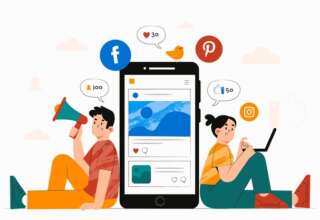
Since social media were invented, they have affected personal and professional lives alike, negatively and positively. The first recognisable social media site was created in 1997. Yep! That was 20 years ago. The site was called “Six Degrees” (6°) and it was the first site ever on the mainstream web to allow users to create profiles and friend others, to communicate and stay connected. The site also allowed people who were not registered as users to confirm friendships and that was a huge advancement, considering it was 1997.
This, however, has changed completely. Access to internet and technology has increased tremendously, thus resulting in more new social networks being introduced. In 2003 an internet company took a more serious approach to social networking. It made the world’s first professional social network and named it LinkedIn. The main purpose was to link professionals and businesses. It was a huge success because more people had access to the internet.
That same year another internet company started a social network with a slightly different objective from that of LinkedIn. Their goal was to connect users without the fuss of registering through an encrypted internet line. All they needed was a working e-mail address. The site was named MySpace. It became a real success and inspired a host of other applications including Mxit, MSN Messenger, Google Chat, and the two giants Twitter and Facebook.
We live in a world where staying connected is the number one priority. Being in sync with social media keeps you in the know, no joke. Most information is shared across social networks before it even makes the news or goes to print. This means that nowadays most people rely on social media as an information source more than they do to newspapers and TV. Which leaves the question, how reliable can social media be?
In fact, we have seen some reputable news and media agencies reporting using social media as their only source. Sometimes it can be used to over-sensationalise the grotesque and rather unsavoury actions like the hash tags that took Twitter by storm yesteryear including #TshwaneUnrest, #PaidTwitter, #WarRoom and a host of other troll accounts created to discredit certain members and political parties.
This can and has caused some damages to the reputation of the persons and parties involved. A recent study revealed that social media bullying has negative effects on one’s confidence and self-esteem. The essence of freedom of speech gives everybody an equal and unreserved opportunity to express themselves without infringing other’s rights. But what you say today, may have an everlasting effect on the person on the receiving end.
[“Source-huffingtonpost”]





